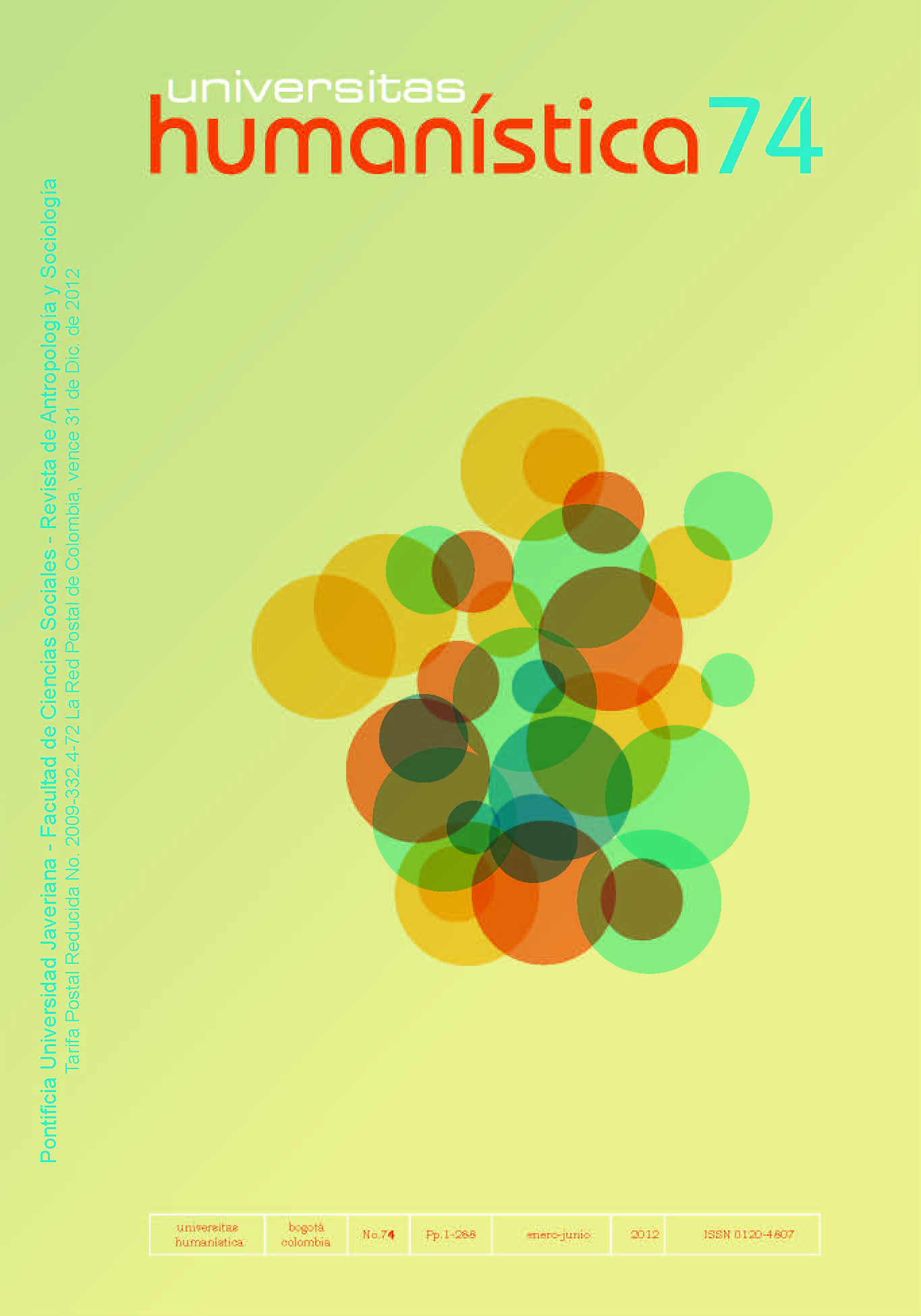Abstract
The multicultural approach seems to be the most praiseworthy instrument through which the acknowledgement of cultural diversity could renew the deontic structure legitimised by the socio-political order in Colombia. Facing a State model based on the denial and exclusion of diversity, the multicultural State allows for pluralism to be articulated into it. In this way, the formation of political unity becomes a matter determined by dialogue, mutual acknowledgement and cultural enhancement. Nevertheless, the multicultural interpretation lacks plausibility if the formation of the State is understood in a pragmatic and universalistic way. From this perspective, the inclusion of the Other is likely only if social actors promote interactions regulated by a political culture based on constitutional principles, active participation, public deliberation and the organisational ability of communities. A shared political culture of this nature seems unavoidable if the purpose is to form a citizenship more suited to living in a democracy.
This journal provides immediate open access to its content on the principle that making research freely available to the public, encourages greater global exchange of knowledge.
The journal Universitas Humanística is registered under a Creative Commons Attribution 4.0 International Public License. Thus, this work may be reproduced, distributed, and publicly shared in digital format, as long as the names of the authors and Pontificia Universidad Javeriana are acknowledged. Others are allowed to quote, adapt, transform, auto-archive, republish, and create based on this material, for any purpose (even commercial ones), provided the authorship is duly acknowledged, a link to the original work is provided, and it is specified if changes have been made. Pontificia Universidad Javeriana does not hold the rights of published works and the authors are solely responsible for the contents of their works; they keep the moral, intellectual, privacy, and publicity rights.
Approving the intervention of the work (review, copy-editing, translation, layout) and the following outreach, are granted through an use license and not through an assignment of rights. This means the journal and Pontificia Universidad Javeriana cannot be held responsible for any ethical malpractice by the authors. As a consequence of the protection granted by the use license, the journal is not required to publish recantations or modify information already published, unless the errata stems from the editorial management process. Publishing contents in this journal does not generate royalties for contributors.


